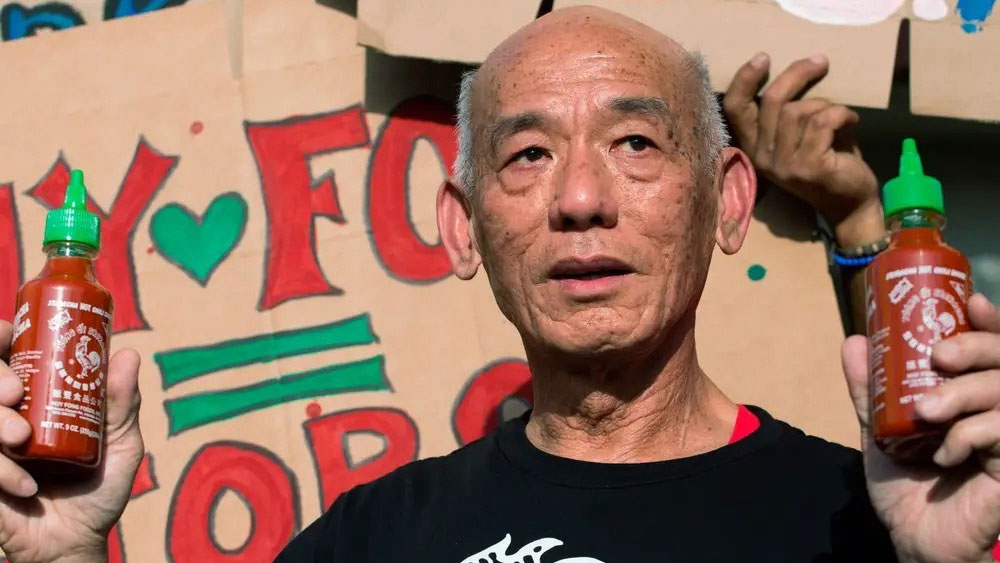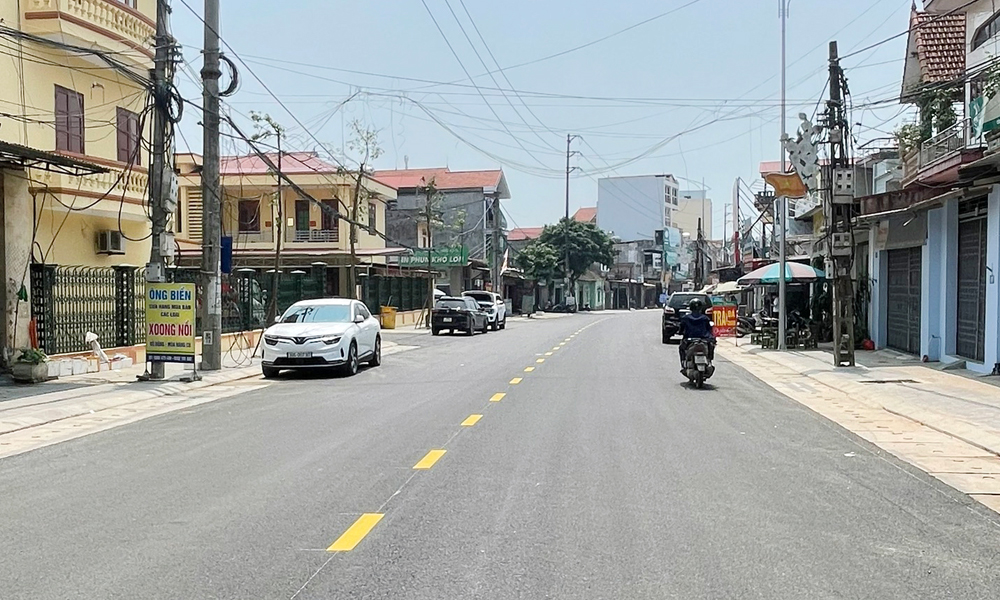Overseas Vietnamese becomes America’s sole hot sauce billionaire
In 1979, David Tran, then 34, left Vietnam for the US. He settled in Los Angeles, California in early 1980. He set up a business, Huy Fong, which makes Sriracha hot sauce, a condiment he created following a recipe originally from Thailand.
Over 40 years later, Sriracha has been seen on the TV series Survivor, at the International Space Station and on dining tables worldwide, according to Forbes.
 |
|
David Tran, Vietnamese-American chili sauce billionaire. |
Its bottles, with their rooster logo and green squeeze cap, are used by 10% of U.S. families, according to market research firm NPD.
The sauce ranks third in the US$1.5 billion US hot sauce market behind Tabasco, owned by the McIlhenny family, and Frank’s RedHot, part of spice giant McCormick & Co.
Today Huy Fong is worth $1 billion, based on estimated sales of $131 million in 2020, according to research firm IBISWorld. That makes Tran, 77, who owns the company, America’s only hot sauce billionaire.
And while some of Sriracha’s competitors have been snapped up in recent years --McCormick purchased Mexican hot sauce brand Cholula for $800 million in 2020 -- Tran has no plans to sell.
He intends to pass the business on to his two children -- William, 47 and Yassie, 41 -- both of whom work for the company.
Sriracha has survived a lawsuit over its factory’s smell and, most recently, a climate-related shortage of chilis last year that forced Huy Fong to temporarily halt production, causing retail sales to spike as consumers stocked up.
"I want to continue to make a good quality product...and not think about making more profits," Tran told Forbes.
Tran was born in the southern province of Soc Trang in 1945. His father was a merchant and his mother was a housewife.
At age 16, with only an elementary school education, Tran moved to Saigon, now known as Ho Chi Minh City, to work at a chemical store.
He married his wife, Ada, and then worked with his older brother growing chilis on a plot of land they owned northeast of Saigon.
By 1979, many of the Tran family’s friends were leaving Vietnam. "I had enough money saved to buy our way out," he said.
To limit potential losses, Tran split the family into four groups: One group went to Indonesia, another to Hong Kong. A third went to Malaysia, and a fourth to the Philippines.
Tran traveled on a freighter, the Huy Fong. "I landed the first week of January in 1980," New York Times quoted him as saying. "By February, I was making sauce."
Tran started selling Sriracha out of a blue van. By 1987, demand had grown so much that he moved Huy Fong to a 232-square-meter building in Rosemead, in eastern Los Angeles.
Tran did not anticipate the popularity of his take on sriracha. He believed the sauce to be good. He liked to tell people that all he did was grind peppers, add garlic and bottle it.
He figured that immigrants of Vietnamese ancestry would stock his sriracha at pho shops. He hoped that the occasional American consumer might squirt it on hot dogs and hamburgers.
But with the company’s rapid growth came new challenges. In 2013, the city of Irwindale sued Huy Fong over the chili odors emanating from the company’s factory, claiming it was a "public nuisance."
Usually press shy, Tran fought back by opening up the factory to public tours and letting the outside world in.
"One of the things that makes Tran so fascinating is his reluctance to tell his story," said Griffin Hammond, a documentary filmmaker who created a 2013 documentary on Sriracha. "All he cares about is running his business very well."
By May 2014, the city had dropped its lawsuit. Sriracha’s runaway success has also led to counterfeiters.
Another challenge came in 2017, when Huy Fong’s relationship with Underwood Ranches, its exclusive supplier of chilis since 1988, collapsed and led to a legal battle.
Huy Fong initially sued Underwood in August that year, claiming that Underwood had not repaid an overpayment of $1.4 million from the previous growing season.
Underwood counter-sued, alleging that Huy Fong had breached its contract and that Huy Fong had set up a new entity in 2016 to source chilis from other growers.
The court fight went on until 2021, when a California appellate court ordered Huy Fong to pay Underwood $23 million in damages.
Even now with multiple growers in California, New Mexico and Mexico, the company, which reportedly goes through 50,000 tons of chilis a year, is reliant on a strong harvest in the spring chili growing season to ensure it has enough peppers to produce its hot sauces.
Disaster struck in the spring of 2022 when weather conditions led to a poor harvest and a "severe shortage" of chilis, forcing Huy Fong to temporarily stop production.
That shortage appears to have passed, and Huy Fong has returned to its usual pace of churning out 18,000 bottles of Sriracha an hour.
The company also makes two other hot sauces. Its sambal oelek is based on an Indonesian recipe that uses only chili, salt and vinegar. And its chili garlic sauce is similar but adds garlic.
Tran has always used the same ingredients in Sriracha since he first started selling it in 1980: chili, sugar, salt, garlic and vinegar. Over more than 40 years, that has been a recipe for success, turning Huy Fong from a tiny start-up to a billion-dollar business.
Source: VnExpress
 Bắc giang
Bắc giang














Reader's comments (0)